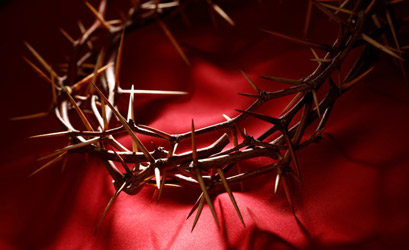November 2010 - Vol. 44
Tertullian, a second-century Church Father, expressed a profound and enduring reality when he said, “The blood of Christians is seed.” As he looked beyond the suffering of the early Christian martyrs, he could see that their brutal deaths were not in vain. They would be like the mustard seed spoken of by Jesus (Matthew 13:31). From their sacrifice, the kingdom of God would blossom, strengthening the church and the faith of countless Christian believers. Nearly two thousand years later, John Paul II made a similar observation. “Be certain of this,” he said. “The blood of martyrs is in the church a force for renewal and of unity.” His words were contained in a 1996 message to the Trappist monks worldwide in response to the slaying of seven monks by a militant Islamic group in Algeria. Since the resurrection of Jesus, Christians have witnessed boldly to their faith in him as the Son of God. Millions of men and women have willingly suffered and died rather than deny their Savior. They believed that in death, they were not losers but victors, for “the sufferings of this present time are not worth comparing with the glory that is to be revealed to us” (Romans 8:18). Reflecting this truth, Clement of Alexandria wrote: “Martyrdom is fullness, not because it finishes a human life but because it brings love to the fullest point.” The night before the German Lutheran pastor Dietrich Bonhoeffer was to be executed by the Nazis, he told another prisoner: “This is the end – but for me, the beginning of life.” Anticipating his murder in Tibet in 1949, Maurice Tornay declared, “When we die, we have conquered.” A life of witness
The risk of martyrdom has always accompanied the proclamation of the gospel. Stephen, the first martyr, was stoned because his preaching and testimony to Jesus as the Son of God angered some of the Jews (Acts 6:8–8:1). Luke the evangelist tells us that on “that day a great persecution arose against the church in Jerusalem” (Luke 8:1). Peter the apostle was crucified head downward during the reign of the emperor Nero in Rome (probably in A.D. 64), where he had gone to spread the gospel. Church historians believe that Paul the apostle was also in Rome when he was beheaded several years later.
Martyrs young and old attested to Christ living in them as they imitated him in death. Ignatius of Antioch, who was martyred in 107, wrote that persecuted believers are “with the help of Christ, to run to death, to imitate his passion.” Just before Felicity was to face the wild beasts in the arena in Carthage early in the third century, she told her jailer: “Another will be in me, who will suffer for me because I also am about to suffer for him.” The Roman persecutions came to an end in 313 through an edict issued by the emperor Constantine, and Christianity flourished. Moreover, it grew into a force that shaped the civilization and moral life of the Western world. However, in many countries, Christian missionaries continued to be martyred, along with many indigenous people who had been converted. For example, in 1597, native converts were executed in Nagasaki, Japan, and thousands of Japanese believers were killed throughout the seventeenth century. In the 1640s, Jesuit priests and Christian Hurons were killed by the Iroquois in North America. Modern challenges
to Christianity
In addition, as the churches have responded to the gospel call to protect the rights of the poor, uphold the sanctity of life, and promote just economic practices, Christians have often found themselves involved in social or political actions. Sometimes these actions have cost them their lives. A Christian martyr is someone who has willingly died for refusing to deny the faith or perform an act inconsistent with Christian faith or morals, typically at the hands of someone with a hatred for Christianity. In contemporary times, it is sometimes difficult to determine precisely what factors – ethnic animosities, political ideologies, economic advantage, or hatred for religious faith – motivated those who were responsible for these deaths. Churches worldwide cherish the testimony of all believers who, by their deeds in life and sacrifice in death, give courageous witness to Christ and his truth.
In 2000, John Paul II gathered leaders from many Christian denominations at the ancient Colosseum in Rome to celebrate the witness of the martyrs. “The example of the heroic witnesses to the faith is truly precious for all Christians,” he reminded them. “It is a heritage that speaks more powerfully than all the causes of division. The ecumenism of the martyrs and the witnesses of the faith are the most convincing of all. To the Christians of the twenty-first century, this shows the path to unity.” The global nature
of martyrdom
The first years of the new millennium have already produced considerable testimony about Christians of various denominations martyred in countries such as China, the Sudan, Vietnam, Cambodia, Pakistan, India, and Colombia.
The cardinal related that, when he was in prison, the police who were interrogating him provided sheets of paper so that he could write answers to their questions. Some of this paper he was able to keep secretly for himself. “So, little by little,” he explained, “I managed to make a tiny notebook. Day by day, I was able to write in Latin the more than three hundred sentences of Sacred Scripture that I recalled from memory. The Word of God, thus reconstructed ... was my precious jewel-case from which I drew strength and nourishment” (Testimony of Hope, 2000, Pauline Books, pp. 62-63). At this very moment, many of our brothers and sisters are experiencing
the same discrimination, suffering, and persecution that Cardinal Van Thuan
endured. Some are also dying for witnessing to their faith in Christ. Let
us remember that, in the body of Christ, “if one member suffers, all suffer
together” (1 Corinthians 12:26). May we speak out and work in their defense,
and may we lift up these Christians in prayer, asking for our Father's
mercy on them. May we help sustain them through our constant intercession.
The witness of the martyrs – past and present – must not be forgotten.
|
. | |||
|
publishing address: Park Royal Business Centre, 9-17 Park Royal Road, Suite 108, London NW10 7LQ, United Kingdom email: living.bulwark@yahoo.com |
. |
 .
.
 A
wave of persecution
A
wave of persecution

 Not
to be forgotten
Not
to be forgotten
